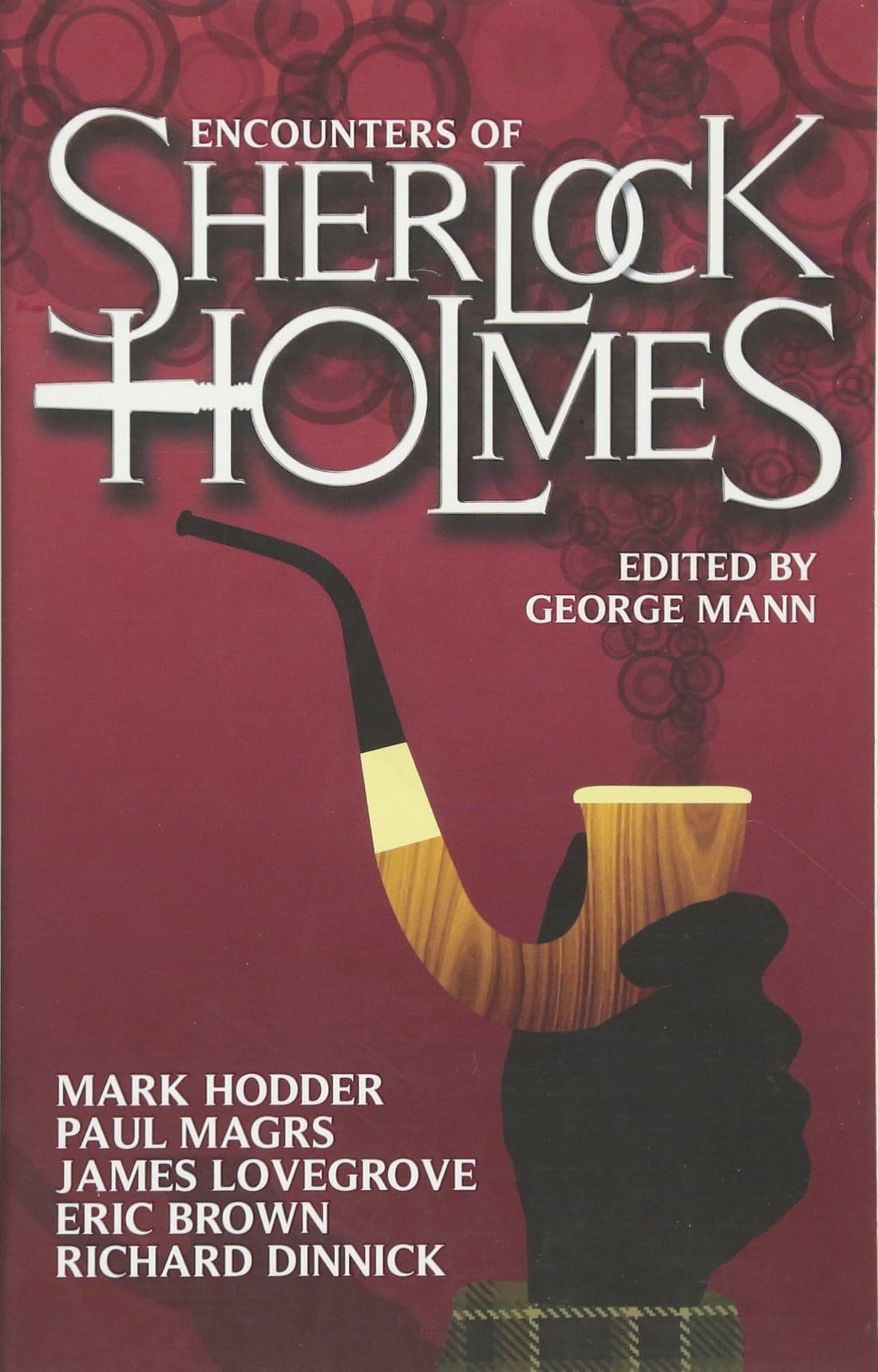 Should authors extend the legacy of the Sherlock Holmes? If they do; should they pitch the great detective against zombies, Daleks or insidious body snatching aliens?
Should authors extend the legacy of the Sherlock Holmes? If they do; should they pitch the great detective against zombies, Daleks or insidious body snatching aliens?
The Encounters of Sherlock Holmes , a new collection of adventures from Titan Books include stories from horror and steampunk authors like James Lovegrove, Paul Magrs, Guy Adams, George Mann and Mark Hodder.
George Mann contributed a story and edited the anthology. He’s the author of the Newbury and Hobbes novels, editor for the Solaris Book of New Science Fiction and The Solaris Book of New Fantasy and audio script writer for the BBC’s Doctor Who.
Very kindly, George agreed to an interview here at Geek Native.
Why are people still fascinated by Sherlock Holmes?
I think with the Sherlock Holmes stories Conan Doyle defined a genre. Although others had written crime fiction, with Holmes, Doyle introduced us to the first major recurring character in crime fiction. He’s become synonymous with exciting tales of mystery and adventure. Not only that, but the format used by Doyle is the template for all modern crime fiction, and, indeed, for modern policing – people reading a Holmes story now can still see the parallels to the way crimes are investigated now. The technology has moved on, but the forensic processes are very similar.
Holmes remains relevant today – and the cleverness of the stories still thrill and intrigue readers new to them.
How daunting was it tackling a Sherlock Holmes story yourself?
The trick is that you have to forget you’re writing about one of the greatest fictional characters of all time. The first time you sit down and conjure up Baker Street on the page is a very special moment, the first time Holmes utters a comment to Watson you pause for breath and think ‘am I really writing this?’. But you have to put that out of mind and get on with telling a good story. That’s what you’re there to do, at the end of the day – tell a good mystery story that’s true to the characters that Doyle created. That’s more important than anything else, because if you let anything get in the way of that, you’ve fallen at the first hurdle.
Encounters of Sherlock Holmes is an anthology which includes work from horror and steampunk authors. Do you feel Holmes lends himself to genre crossovers and mashups?
I think Doyle developed a wonderfully flexible format for the Holmes stories, and it can be applied to almost anything. More than that, though, I think there’s a great deal of drama to be had from pitching the arch-rationalist – Holmes – against the irrational or unexplained. Holmes has no time for the illogical, and seeing how he deals with these things is fascinating. I think it also allows us to challenge our own beliefs, too, using Holmes as a mirror. How would we react in the same circumstances?
Should the vision of Arthur Conan Doyle’s Holmes be sacrosanct?
Oh, interesting question! And a very difficult one to answer. I think the key – for me – is that whatever you do with Holmes, he should remain true to his character. Otherwise it stops being a Holmes story and becomes something else again. That’s not to say I think you can’t update the setting and the language, or pitch Holmes against monsters or ghostly spirits – just that he has to remain, fundamentally, Holmes. The character is so well defined that he deserves that respect, as do the readers/viewers/listeners. That’s what they’re coming to this for – a Holmes story. Seeing how he handles unusual circumstances or villains is then just part of the fun.
Do you watch and have you enjoyed any of the recent Holmes inspired TV shows?
I’ve watched and adored the new BBC Sherlock series from Steven Moffatt and Mark Gatiss. I think they got the tone just right, and the cast is superb. I think that’s a great example of what I’ve just said, actually – they’ve managed to update the setting but have kept the heart. The characters are recognisably Holmes and Watson.
You’re a Doctor Who author yourself so do you see any parallels between the great Timelord and the great detective?
Lots! Yes, I think Holmes and the Doctor are two sides of the same coin. I spoke earlier about the flexible format of the Holmes stories and the need to remain true to the central character, and it’s exactly the same with Doctor Who. He can go anywhere in time and space, face off against all manner of wondrous enemies, but essentially, the story is the same as Holmes – he’s an eccentric hero who turns up in any given situation, acts a little oddly, then resolves whatever drama is taking place through the careful application of his mind.
I think both Holmes and the Doctor share an archetype – the intelligent hero, the uber-geek, the man who doesn’t have to rely on violence.
Are great mysteries partly responsible for helping to create great characters?
Characters are shaped by the circumstances in which they live, just like people. So I think great characters develop because of the mysteries they face. But I think the germ of a good character has to come first, otherwise they’ll never transcend the mystery. If Holmes wasn’t such a powerful character we’d talk about the mysteries he solved, rather than the character. But we don’t – we refer to Holmes first. Good characters have mystery about them, too, of course – they’re well rounded and don’t reveal all of their secrets.
As a writer, what do you think the secret to creating a great mystery is?
Hmmm. Tricky. I think once you’ve got the characters, it’s about challenging them, putting them in situations that challenge their beliefs and preconceptions, because that gives them something meaty to wrestle with. For me there’s a planning process that’s necessary, too – I plot out the details of the mystery before I start writing, in order to know what seeds to plant where, and how my characters will discover the truth.
What projects can we hope to see from you in the future?
Well, there’s a new Newbury & Hobbes novel, The Executioner’s Heart, due out this summer, as well as a Newbury & Hobbes short story collection later this year. On top of that, I’m just putting the finishing touches to a new Holmes novel, too, which has been a great deal of fun to write. It’s a busy year, and I’ll be keeping my head in Victorian London for some time to come!
What do you think? Share your input on this article in the section below.

